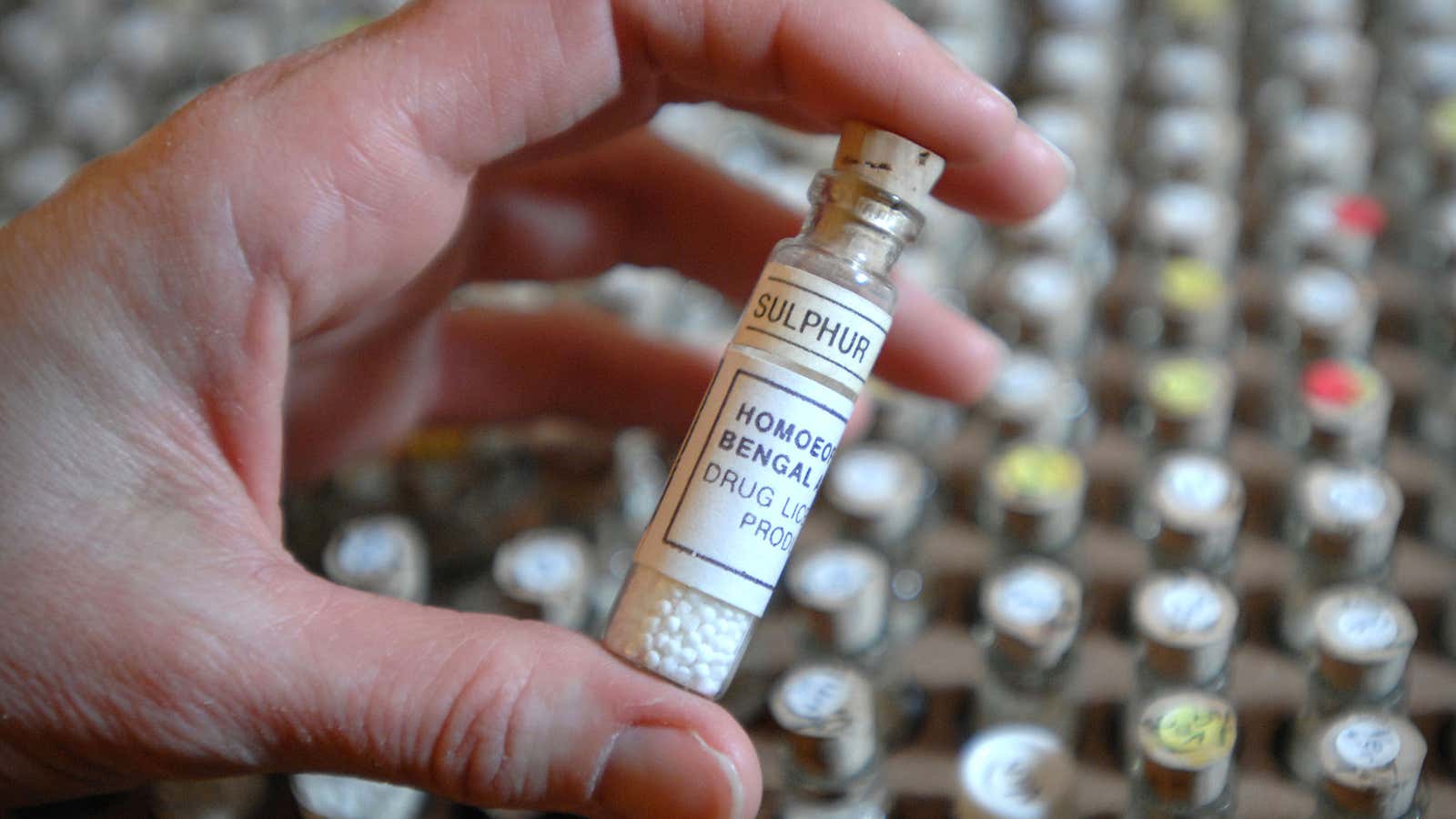Homeopathy is a joke that shames medicine. Its practitioners earn billions of dollars every year by peddling pure nonsense. The case against it is incredibly easy to make.
The principles of homeopathy are broken. The first principle of the practice says that “like cures like.” So if chopped onions make you cry, onion juice can treat hayfever, which produces runny eyes. The second principle is that “the greater the dilution the more the potency.” So, in effect, the onion juice is diluted to such an extent that there are no molecules of onion juice left in the final solution. This is considered a potent homeopathic remedy.
Both of these principles have no scientific basis. No well-respected chemist or physician would be able to explain from first principles why a homeopathic remedy ought to cure anything.
Despite more than 200 clinical trials—the gold standard of evidence in medicine—there are no indications that homeopathy works. A 2007 meta-analysis of many of these trials published in The Lancet found that the clinical effects of homeopathy are nothing but placebo effects.
But if the facts are indisputable, why do millions still believe in homeopathy? The answer lies in how an industry can cleverly exploit flaws in human thinking.
The practitioners of homeopathy offer disgruntled or unhappy patients hope. They do so at a time when, most probably, the body is healing itself. When the patient gets better, they give the credit to homeopathy instead of the simple passage of time.
Once initiated, practitioners share the “laws” of homeopathy. These are counter-intuitive and create an aura that the patient is now privy to exclusive information. According to Stephen Law, a philosopher at the University of London and author of Believing Bullshit, this cultish behavior traps people.
So what is the harm if it’s only a placebo? For minor illnesses, probably not much. But there are people who, for instance, believe that homeopathy can cure cancer. Worse, if enough people believe in such bunkum, governments with nationalized health services, such as that of the UK and Australia, have to spend taxpayer money on homeopathy.
But things are changing, the UK is now considering blacklisting homeopathic remedies, which would ban doctors from prescribing them. Patient choice, like freedom of speech, may be sacrosanct, but that doesn’t mean that everyone should bear the burden of some people’s foolish choices.
